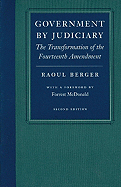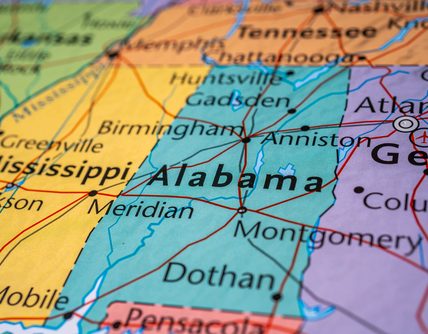Constitutional Background
The constitutional justification for much of the federal regulatory and administrative apparatus rests on either of two very wide interpretations of Congress’s power over interstate commerce. Modern Supreme Court jurisprudence relies mostly on a blend of the Commerce Clause and the Necessary and Proper Clause.
On the other hand, some academics argue that the word “Commerce” standing alone refers either to all human relationships or at least to all economic activities. These are two versions of what I have called collectively the “mega-Commerce Clause hypothesis.” It obviates the need to rely on the Necessary and Proper Clause, which the Founders understood only as a rule of construction, not as a positive grant of power.
Surveys of the Founding-era Meaning of “Commerce”
Several pre-2022 surveys examined how the word “commerce” was used in Founding-era discourse. The surveys inspected usages in America and in Great Britain over extensive time periods and in different kinds of literature, including political discourse, legal usage, newspapers, public essays, and dictionaries.
All the surveys concluded that the dominant Founding-era use of “commerce” referred only to mercantile affairs—that is to trade and a few associated activities, including navigation, governance of merchants, price controls, commercial finance, tariffs and other imposts, and marine insurance. Thus, the findings contradicted the mega-Commerce Clause hypothesis.
The 2022 Survey
In 2022, I realized that those surveys are subject to objections. First, they are temporally over-inclusive—that is, they cover a time span far longer than the period during which the Constitution was under public consideration. Further, they are geographically over-inclusive in that they encompass English as well as American uses. The way a word was used in 1730 or in England might well be different from how it was used during the 1787-1790 period within the confines of the United States.
Finally, the Constitution does not use the word “commerce” in isolation. It employs the word in a specific regulatory sense: The phrase in the Commerce Clause is “regulate Commerce” and in the Port Preference Clause “Regulation of Commerce.” However, the surveys chronicled the use of “commerce” in other contexts.
In 2022, I structured a survey designed to meet these objections. The results were reported in The Meaning of “Regulate Commerce” to the Constitution’s Ratifiers, published in the Federalist Society Review.
The survey database was the set of over thirty-five volumes that comprises the Documentary History of the Ratification of the Constitution of the United States. This source includes a large quantity of documents, nearly all of which are American and relevant to the debates over the framing and ratification of the Constitution during a narrow time period.
Rather than examining the word “commerce” in isolation, the survey identified and classified the following related target terms:
- The Commerce Clause phrase “regulate Commerce,”
- the Port Preference Clause phrase “Regulation of Commerce,”
- “regulations of commerce,”
- “regulate our commerce,”
- “regulation of our commerce,”
- “regulations of our commerce,”
- “commercial regulation(s),” and
- “regulations respecting commerce.”
The results of the survey confirmed that the target terms carried relatively constrained meanings among participants on all sides of the constitutional debate. It also found a close identification between the concept of commercial regulation and the then-prevailing lex mercatoria (law merchant). By putting together individual uses of the target terms with the known content of the lex mercatoria, one could reconstruct the scope of the Commerce Clause as the ratifiers understood it.
The results were wholly inconsistent with either version of the mega-Commerce Clause hypothesis.
The Need for an Update
Unfortunately, at the time of the 2022 survey, the Documentary History’s collection of ratification documents was not entirely complete. Since that time, the editors have rounded it out by releasing additional volumes of “supplemental documents.” These are documents the editors did not deem sufficiently important to include in the original volumes.
Some of the new books simply reproduce in clean print form certain documents previously made available in microfiche or typewriter-style form. But others feature documents not published heretofore. That new material consists of a few items from the Confederation Congress and substantial collections from the states of Maryland, New Hampshire, New York, South Carolina, and Virginia. The volumes with wholly new material comprise nearly 3,000 pages.
I searched the new material for all appearances of the word “commerce” and for all appearances of the target phrases searched in the 2022 study. As you might expect, there were far more references to commercial regulations in the mercantile states of Massachusetts and New York than in the other four states represented. However, there was no evidence of local variations in meaning anywhere in the country.
The Findings: “Commerce”
The results were fully consistent with those of the 2022 and earlier studies. The expressions “commerce,” “trade,” and “trade and commerce” were employed as synonyms. They were closely identified with the content of the lex mercatoria; appearances in this survey included references to navigation, imposts, and trade restrictions.
Thus, a Massachusetts writer who called himself “An Observing Countryman” discussed “our drooping commerce” and emphasized the need to build ships for the “carrying trade.” A New Yorker writing under the name of “Eboracus” (Latin for “Yorker”) opined, “In commerce European nations consider us as growing rivals, particularly in the fishery and East-India trade.”
Similarly, a report of a South Carolina legislative debate after the Constitution was made public depicted Charles Cotesworth Pinckney (who had represented his state at the Philadelphia convention) discussing commerce almost entirely in terms of shipping. A New Yorker, writing in the Poughkeepsie Country Journal complained:
“No nation at present will condescend to form a commercial treaty with a body that has no authority to enforce its observance. . . It is difficult to tell (said a member of the British house of commons, when considering this very subject of their trade with us) whether the United States of America are thirteen disjointed republics—whether they are one consolidated body . . .” (Italics added).
And “Alfred,” a Massachusetts essayist wrote, “[W]ho will risque his character (that has one) in attempting to prove, that while Congress have the exclusive regulation of commerce, any particular State can lay imposts or excises by their own authority?” (Italics added).
There were no usages of “commerce” to mean other kinds of human intercourse such as social commerce or sexual commerce. The only use was mercantile.
Writers frequently distinguished commerce from other economic activities. An unsigned article in the New York American Magazine argued, “When Philosophy gives way to the sword, agriculture, the arts, commerce, and legislation are neglected.” (Italics added; in this context, the phrase “the arts” probably means the practical arts, such as manufacturing.) One “Solon,” contributing to the Massachusetts Independent Chronicle, also listed “agriculture, manufactures, and commerce” separately. A Nov. 21, 1787, Massachusetts Centinel author exhorted: “Agriculture, manufactures, and commerce—may the Americans feel the force of this important axiom—‘a three fold cord is not easily broken.’” (Italics in original).
These appearances are illustrative only; there are many other examples.
Modern commentators sometimes argue for regulation of other activities under the Commerce Power because (they claim) unlike in the 1780s, modern commerce is highly interdependent with those other activities. The flaw in this argument is that commerce was highly interdependent with other activities during the 18thh century as well. The Founders understood this to be the case, and their Constitution still limited federal power to protect values other than central coordination, such as local self-government and liberty.
The Massachusetts Centinel quotation emphasizes this interdependence. Other quotations appear in my first study, The Legal Meaning of “Commerce” In the Commerce Clause.
This new examination found others. For example, the March 28, 1788, Massachusetts Centinel celebrated the construction of three new ships, which, it said “will be a great relief to a number of our industrious mechanicks, whom the decline of commerce, arising from the imbecility of our national government, had deprived of employment, and reduced almost to want.”
Likewise, the Baltimore Maryland Gazette of May 22, 1787 included this item on the fledgling Constitutional Convention:
“By a letter from Philadelphia, it appears, that a sufficient number of Commissioners from the States, were not then arrived in that city, to form the GRAND CONVENTION; but some recent advices make it daily expected, that the representation will soon be compleat. This august meeting, will certainly be of the highest importance to the political existence and welfare of the United States. To revise the confederation, and to fall upon a system of commercial regulations, which upon the whole may tend to the revival and establishment of our credit, and the encouragement of our trade and manufactures, are objects of such magnitude, as require the united wisdom of the continent . . . . ” (Italics added; those in original omitted).
Despite this recognition of the interdependence of commerce and other activities unnamed in the Constitution, there was no indication that anyone thought the Commerce Clause empowered Congress to regulate those other activities directly.
The Findings: “Regulate Commerce” and Related Phrases
As noted above, I also searched the new Documentary History volumes for the target phrases examined in the 2022 survey—that is, “regulate Commerce” and its variants. Like the bare word “commerce,” the target phrases always were associated with trade regulations, trade restrictions, navigation, import duties, and other aspects of the lex mercatoria. An example already noted was “Alfred’s” observation on the “regulation of commerce” and imposts.
The pamphlet that reported post-framing South Carolina legislative debates portrayed Charles Cotesworth Pinckney discussing the “regulation of commerce” almost exclusively in naval terms. In the New York Gazetteer, one “Sidney” wrote of the Articles of Confederation:
“And so the [New York] legislature, at their last meeting, seeing that the clause in the confederation directing the commercial regulations, is so worded that it seems to be left to the discretion of the United States in Congress assembled, and the several legislatures, to make such arrangements as they shall think proper, provided . . . that by such arrangements the one shall not be invested with the duties arising from trade, nor shall the other exercise the power of entering into treaties of commerce.” (Italics added; those in original omitted).
A Massachusetts essay signed “A Republican” stated:
“The American trade therefore, being so evidently to the advantage of Britain, we might ’ere long have restored it to a flourishing state, and effected the great purposes of our carrying trade, provided we had given Congress power to regulate our commerce upon national principles, and enabled them to meet the attempts of Britain, with similar restrictions on her navigation.” (Italics added.)
****
“Provided this harmony of sentiment should prevail between the northern and southern States, the regulations of our commerce would be founded on terms of reciprocity in the future arrangments [sic] of Congress. In consequence of such a friendly association, Congress would be furnished with every needful information on all mercantile concerns, and their various acts of navigation would be adopted upon such well authenticated documents, as would prove mutually advantageous to our ship building, fisheries, navigation and agriculture; and consequently to the support of the merchant, husbandman and mechanic.” (Italics added.)
This quotation contains a number of typical characteristics: the identity of commercial regulations with “mercantile concerns” and navigation acts, the identification of other activities separately, and the recognition of the interdependence.
In sum, these newly-published documents provided no support for either version of the mega-Commerce Clause hypothesis.
The Indian Commerce Clause
The Commerce Clause also empowers Congress to regulate not just foreign and interstate commerce, but that “with the Indian Tribes.” I previously investigated the specific content of this “Indian Commerce Clause” and reported my findings in two articles: 2007’s The Original Understanding of the Indian Commerce Clause and 2022’s The Original Understanding of the Indian Commerce Clause: An Update.
The findings were inconsistent with the common claim that the founding generation understood the legal term “commerce with the Indians” to encompass a broader field than foreign or interstate commerce. On the contrary, I learned that nothing in trade or commerce with the Natives exceeded the scope of the lex mercatoria, as it was then understood. Of course, the precise relationships and trade articles appearing in Indian commerce differed from the relationships and trade articles in commerce with England, Jamaica, or France. But the legal content of the phrase “regulate . . . Commerce” was the same.
The sole reference to Indian commerce in the new materials is consistent with that conclusion. It comes from “A Customer,” writing in the June 20, 1787, Poughkeepsie Country Journal:
“The retention of the western posts gives to Britain the complete monopoly of the fur trade. . . It is impossible to calculate with precise accuracy, the productive value of that commerce with the Natives.”
Conclusion
This latest survey—like all the previous ones—confirms that when the Constitution uses the word “Commerce,” it does so to mean mercantile trade and its incidents. The specific constitutional phrases “regulate Commerce” and “Regulation of Commerce” encapsulate the body of law known as the lex mercatoria. This includes the governance of inter-jurisdictional trade and certain associated activities, such as tariffs and navigation. As a general matter, it does not extend to the regulation of manufacturing, crime, agriculture, mining, or other land use.
This article was first published in the Feb. 1, 2024 Federalist Society Blog, and is reposted here with permission from the author






